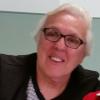The trickle-down theory, or more recently known as trickle-down economics, is essentially that a lot of money at the top will eventually mean a lot of money for the people at the bottom of the economic scale. This theory has also been applied to other areas of inequality, such as access to education or jobs. But the theory doesn't hold up. From my 24 years of ministering in rural Mississippi, I sure haven't seen any trickle down. The gap between the haves and the have-nots is a given in this state: One that is embedded in its very culture.
The phrase "all is sacred" has a fresh meaning for me now because of the opportunity to be part of the 2015 Nuns on the Bus tour, "Bridge the Divide: Transform Politics." One hope I had was that it would provide me with new insights and tools to work for a politics of inclusion. What I experienced was not the heady information I was looking for; instead, my heart was broken open by the life stories of individuals encountered along the way.
In their stories I witnessed sacredness in forgotten people and places, in tiny acts of unconditional love for those at the margins of society. I witnessed the sacredness of speaking truth to power in attempts to confront economic and political inequality. I also witnessed it in the coming together of all peoples for a common good. I have a new and hallowed meaning for the words "We the people."
But one of the most sacred moments for me did not happen on the road, but back in my small rural town of Holly Springs, Mississippi. After ministering for many years in the capacity of program manager for social services and economic development, I have just recently started to volunteer in a GED program. The teacher knew of my trip on the Bus and at my return asked me to briefly share my experience with the class. At the conclusion of my little talk she asked if I would teach one of the civics classes on the four roles of government in our economy. Well, how hard could this be?
As I prepared for the next week's class, I noticed that one of the four roles of government is to provide for the common good. I zeroed in on that topic and decided to engage the students in a mini town hall modeled on the ones we held in the various cities along the Bus route. Two questions were asked: "What are the divides and challenges in our town of Holly Springs?" and "What needs to be done to bridge the divides and move forward?"
The students spoke of their life experience.
Mary, a 59-year-old, told of how at the age of 13 she had to stop going to school in order to help provide for her family by working on their homestead. Up until 1972, Mississippi did not have a mandatory school attendance law for those under 17 years of age.
Tyler, a 19-year-old, told how he left school at the age of 17 because his father was laid off due to the poor economy. He had to find an entry-level job to help meet the mortgage payments for his family.
Tamika, a high school dropout, works two part-time jobs. One of her employers has given her a month to pass her GED test or she will lose her job.
They shared their experience of discrimination based on race or ethnicity and even because of their lack of opportunity. And finally they spoke of the lack of access to health care, local transportation and job skills training and how the government did not provide for their good.
The intense lesson learned that day was mine. The students spoke of hope — hope for a better opportunity if they worked hard and did their part. They spoke of resilience in the face of life's difficulties, and they spoke of their responsibility to make their world, their city, a better place for their sake and the sake of the common good.
I learned that when life is overwhelming and "everything stinks," hope and reliance on it in the long haul strengthens you.
As one student summed it up, "You can't change what is, but you can change yourself if you are willing to use your God-given gifts and make a change for the good."
The lesson that day was not about the four functions of government or the veracity or falsehood of trickle-down economics. Rather it was about how life's daily problems can be an opportunity if we are willing to see the possibilities they offer and do our part to transform them.
Transformation is the ultimate trickle-down effect. We all have the capacity, expertise and resources that an alternative future requires. Conversations build relationships, connectedness and caring for the whole — the common good. The students brought that lesson home to me. Maybe, just maybe, we got the whole theory wrong. Maybe it's really the trickle-up effect.
[Mary Joel Curcio is a Sister of the Living Word with headquarters in the Archdiocese of Chicago who has served her religious community in a variety of leadership capacities. For the past 23 years she has ministered in rural Mississippi as director of development for the only Catholic high school in Jackson, and for the past 13 years has served as program manager with Sacred Heart Southern Missions.]


